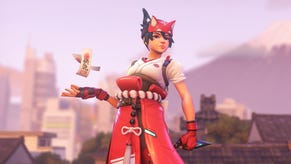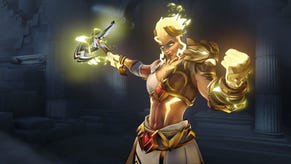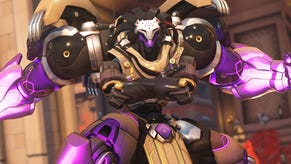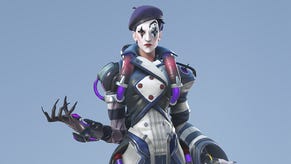England won a thing!
ENGERLAND! ENGERLAND!
If you're still licking your wounded pride after England stacked it in the World Cup, take solace in the news that an English team have won Blizzard's first professional Overwatch season. At the Overwatch League Grand Finals in New York over the weekend, London Spitfire--a team whose name could only be more mawkishly English if it were Sir Percy Brexitworth And The D-Day 1966ers--lifted the cup and restored some of that English pride. Sure, the London Spitfire organisation is American, the players are South Korean, and the digital sport is based in Los Angeles, but the team officially represent London and mate, England is running out of things to claim pride in so take it where you can get it.
As well as a shiny trophy, London Spitfire have won $1 million (about £760 in London squid). You can watch the finals in this here archived stream:
Apparently the team are planning "a lengthy visit to London in October" to celebrate, cos y'know almost everything they do is elsewhere. I have found it interesting that Blizzard try to foster the spirit of cheering on local teams by assigning OWL teams to cities, but it's largely only in name. In terrible, terrible name.
Rumour has it that teams representing France's Paris and China's Guangzhou, and maybe more, will join for the second season.
While I'm playing cheekybreeches, let's take a moment to enjoy how Blizzard introduced England and London back in 2017:
"Home to one of the world's oldest and most far-reaching empires, the streets of the British capital have seen more than we can imagine—and throughout it all, sport has permeated the culture. The first recorded account of a football game being played in the U.K. is from the ninth century and, over hundreds of years, this little game grew and boomed into an empire worth billions: football's English Premier League is the most-watched sports league globally, broadcast to 643 million homes worldwide."
"What that means for English people, rich or poor, is that sport is an inescapable part of culture. Every family has at least one mad lad or ladette for whom their team's performance is equal to his or her mood at any given time. It means children join local sports clubs at very young ages, every weekend a ritual of showing up to a soccer pitch in oversized jerseys, their parents chatting about their lives while their kids run themselves ragged, equal parts a social occasion and spectator experience.
"It's what those parents did as children themselves—and watching their kids learn how to be part of a team and communicate effectively with one another, and how to celebrate their wins or accept defeat, there's pride in it."
It's a nice reminder that whenever anyone attempts to describe another's culture, they're likely talking third-hand bollocks.









